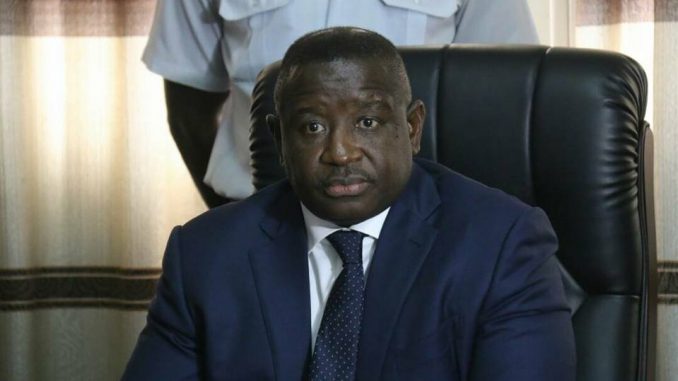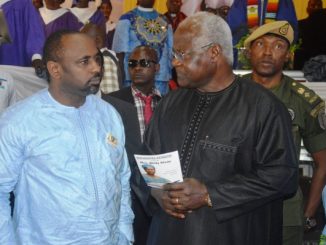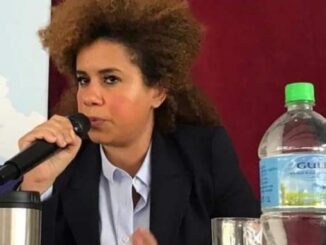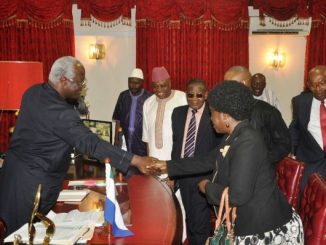
Culled from the Voice of Sierra Leone WhatsApp Forum
*A Nation Held Hostage…*
*Sierra Leone’s $300 Million Power Crisis and the Unending Darkness*
*By Mackie M. Jalloh*
Sierra Leoneans have been subjected to unprecedented hardship due to massive and prolonged power outages across Freetown and other parts of the country. Despite promises of stable electricity supply, the government’s reliance on costly emergency power deals—such as the one with Karpowership—has drained the country’s finances without delivering a sustainable solution. Between January and June this year alone, Sierra Leone has had to pay a staggering $90 million to Karpowership, and by the end of the contract, the country would have paid over $300 million. This shocking revelation was made by Alhaji Dr. Kandeh Kolleh Yumkella, Chairman of the Energy Governance Coordination Group, during an interview with AYV’s Wake Up Sierra Leone.
The scale of this financial hemorrhage raises serious concerns about the government’s handling of Sierra Leone’s energy sector. With hundreds of millions of dollars flowing into foreign pockets, ordinary citizens continue to suffer under an unbearable energy crisis, with businesses collapsing, hospitals struggling, and families plunged into darkness.
The deal with Karpowership—a Turkish floating power company—was meant to be a temporary emergency intervention to address power shortages. However, instead of developing long-term solutions, the government has continued burning millions of dollars on rental power. While some government officials defend the contract as necessary, it has become clear that Sierra Leone is trapped in a cycle of dependency, debt, and darkness.
To put this into perspective, the $300 million that will be paid to Karpowership by the end of the contract could have built a major hydroelectric dam or solar power plant, generating sustainable energy for decades. Instead, the country remains hooked on expensive, short-term fixes that do little to strengthen the national grid.
This is not the first time Sierra Leone has poured huge sums into emergency energy deals. In 2018, the government entered another contract with Karpowership, costing over $40 million annually. In total, Sierra Leone has spent more than $500 million on emergency power since 2015. Yet, the blackouts persist, and the people remain in the dark—literally and figuratively—about where all this money is going.
Sierra Leone’s energy sector has been heavily supported by international partners, yet the government has repeatedly failed to translate this support into long-term power solutions. The African Development Bank (AfDB), the World Bank, the European Union, and the Japanese government have all poured millions into the country’s energy infrastructure.
For instance, the World Bank approved a $40 million grant in 2020 to improve electricity access in Freetown. The African Development Bank also allocated funds to upgrade the Bumbuna Hydroelectric Project, yet these projects have not resulted in reliable energy for citizens.
So, where is the money going? Why does Sierra Leone continue to struggle with electricity despite years of investments and foreign assistance? The answer lies in a lack of accountability, vision, and leadership.
Dr. Yumkella’s remarks about repairing the Kingtom and Black Hall Road generators may offer some hope, but this is yet another temporary patch rather than a real solution. He noted that 10 megawatts will soon be added to the grid, but this is nowhere near what is needed to meet Freetown’s growing electricity demand.
Instead of committing to renewable energy sources and building local capacity, the government keeps chasing quick fixes that are unsustainable and financially crippling. President Julius Maada Bio’s so-called “determination” to break the cycle of emergency power means little when his administration continues to spend hundreds of millions on power ships rather than permanent power plants.
It is time to ask the hard questions: Who benefits from these massive payments to Karpowership? Who are the local intermediaries profiting from these deals? The people of Sierra Leone are certainly not benefiting, as they remain in the dark, both figuratively and literally.
Meanwhile, businesses struggle to operate, students cannot study at night, and healthcare facilities are forced to rely on expensive generators just to function. This crisis is not just about electricity; it is about a government that has failed its people while enriching a select few.
Sierra Leone has all the resources to build a sustainable energy future. The Bumbuna II hydro project, solar and wind power investments, and energy efficiency programs should be prioritized over costly rental power agreements. Instead of constantly begging for international aid, the government should ensure that the millions already received are used effectively.
If $300 million can be spent on a temporary power ship, why can’t a fraction of that be used to construct new power stations, improve transmission lines, and expand renewable energy projects?
The government’s reckless spending and poor energy policies have kept Sierra Leone locked in an endless cycle of blackouts, corruption, and foreign dependency. The Karpowership deal is nothing short of an economic crime, draining the nation’s resources while leaving its people in darkness.
Sierra Leoneans must demand accountability. Enough of the excuses, the lies, and the failed promises. It is time to end the reliance on expensive, short-term power rentals and build a future where energy security is no longer a privilege for the few but a right for all.




Leave a Reply